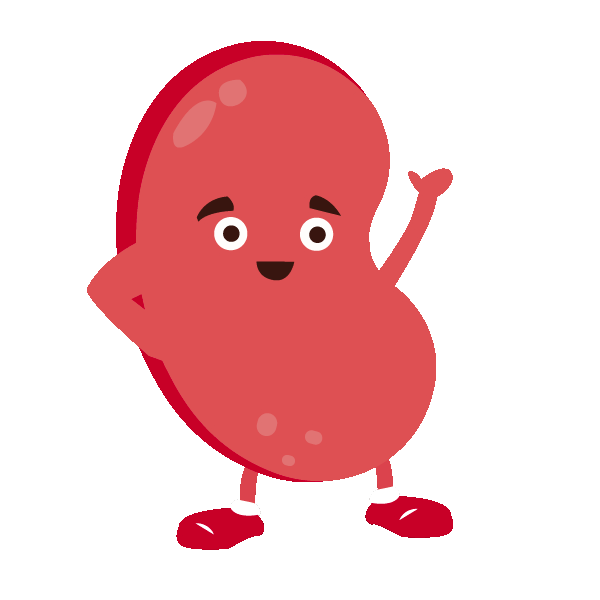#BubblePee
Does Bubbly Pee Mean A Bad Kidney?
Don’t fall prey to chronic kidney disease!

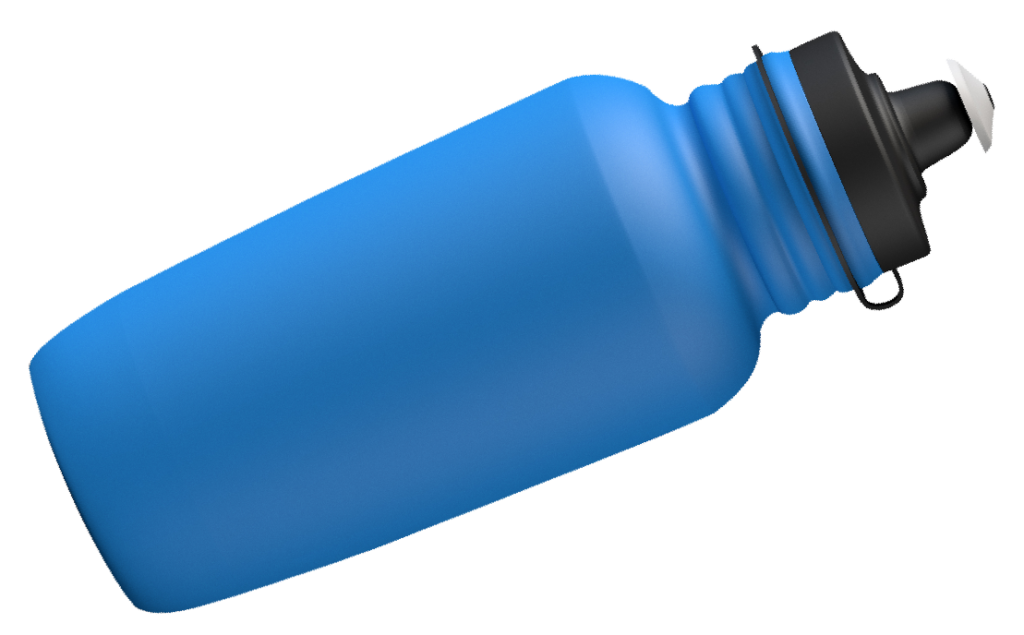
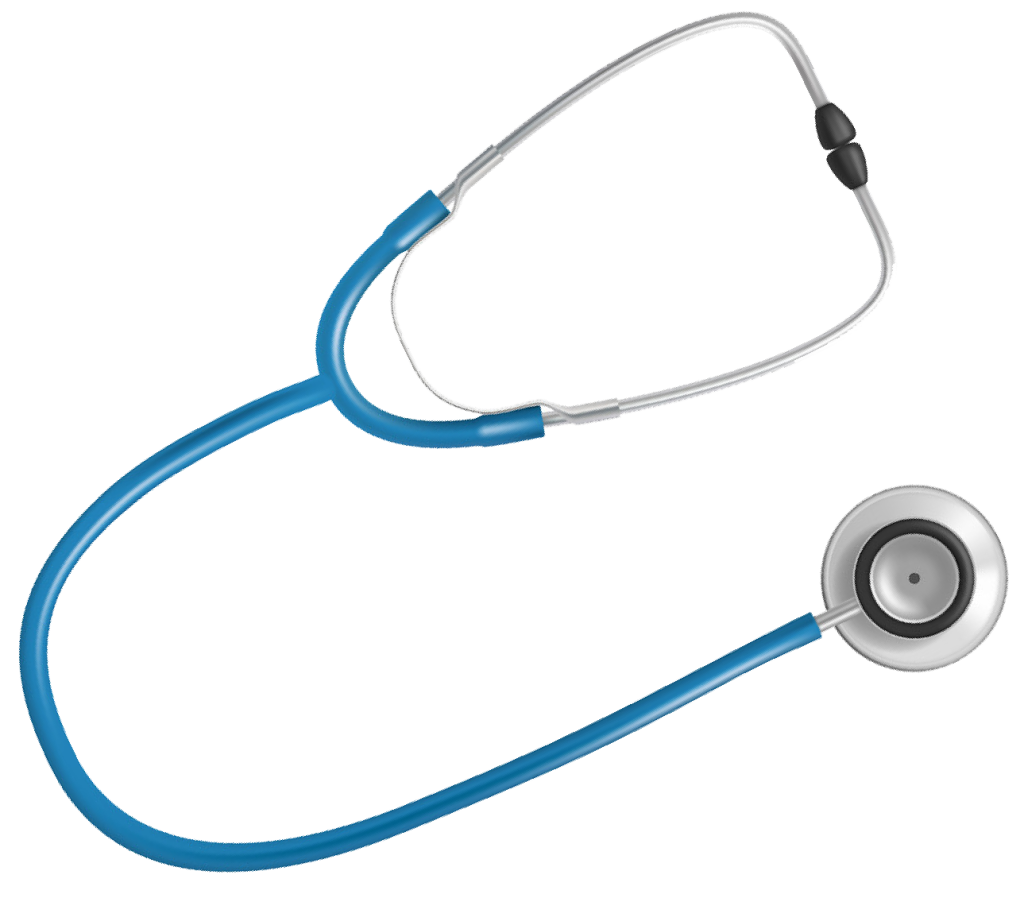




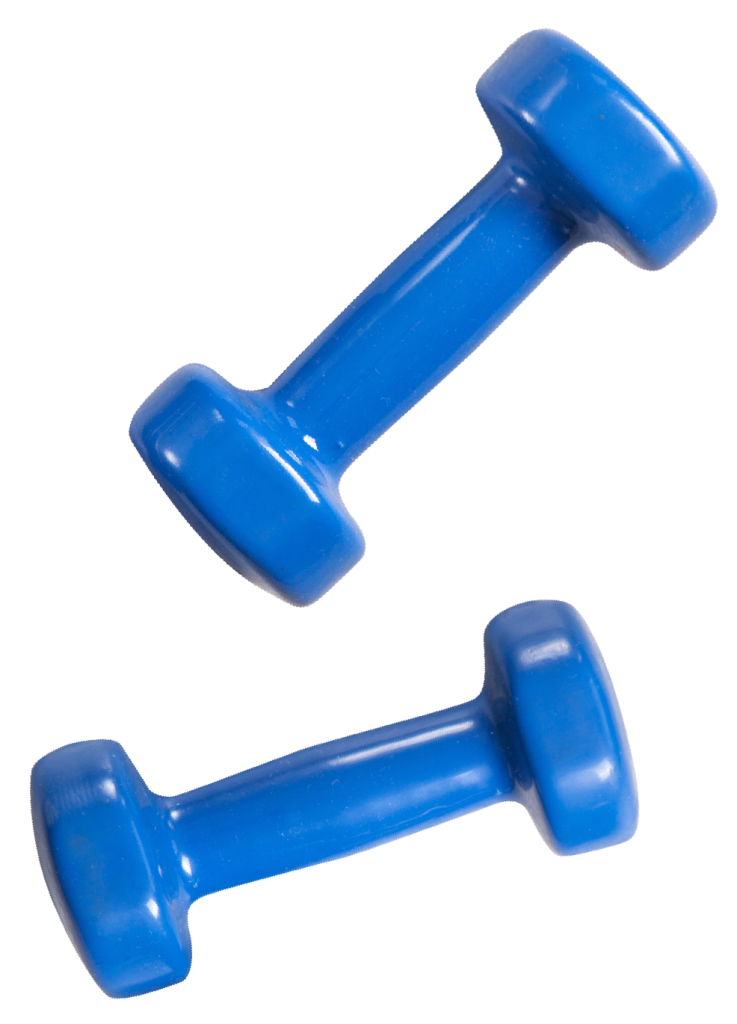


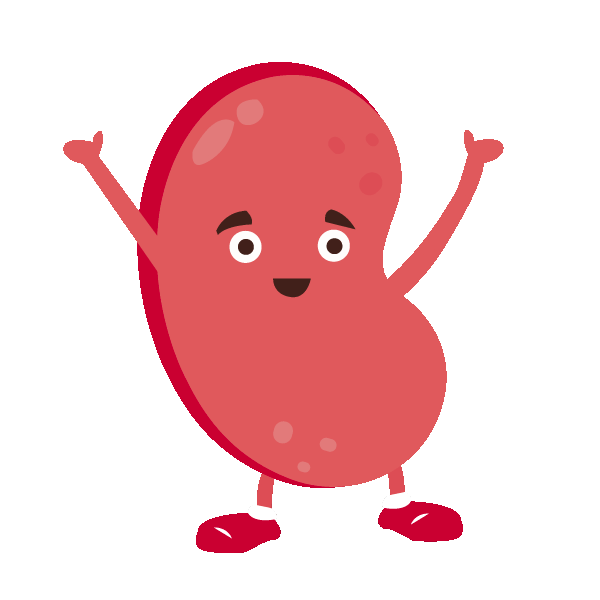
TROUBLE WITH BUBBLES?
We all see bubbles in the toilet after urinating. Bubbles that are bigger, clear and flushable are nothing to worry about. However, persistent white foam that does not dissipate quickly ought to set off alarm bells.
This is a cause for concern as kidneys filter out waste and excess water from our blood, leaving most proteins in the bloodstream. White foam in our urine indicates an excessive amount of protein, telling us that our kidneys are not functioning properly. Thus, this abnormality could suggest a serious kidney problem. In addition, kidneys also play an important role in controlling the blood pressure in our bodies and stimulating the bone marrow to produce red blood cells.
Kidney health should not be taken lightly, as unhealthy kidneys are detrimental to one’s well-being and lifespan. So the next time you use the toilet, pay attention to the bubbles you see after urinating and consult your doctor immediately if you suspect something!
Cleveland Clinic. Proteinuria [Internet]. 2019 [cited 16 Jun 2022] Available from https://my.clevelandclinic.org/health/diseases/16428-proteinuria
National Cancer Institute. Kidney [Internet]. [cited 16 Jun 2022] Available from https://www.cancer.gov/publications/dictionaries/cancer-terms/def/kidney
Northwestern Medicine. Foamy Urine: What’s Normal, What’s Not [Internet]. [cited 16 Jun 2022] Available from https://www.nm.org/healthbeat/healthy-tips/foamy-urine-whats-normal-whats-not



DIFFERENTIATING
THE GOOD AND BAD




dissipates quickly.




DIFFERENTIATING
THE GOOD AND BAD














































































Healthline. Urine Colors Explained [Internet]. 2022 [cited 16 Jun 2022] Available from
https://www.healthline.com/health/urine-color-chart

SIGNS OF BAD KIDNEYS

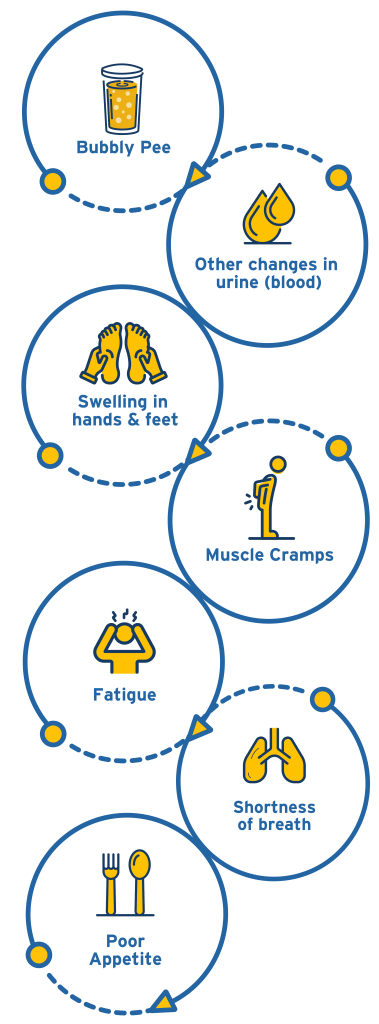
Cleveland Clinic. Kidney Disease/ Chronic Kidney Disease [Internet]. 2020 [cited 16 Jun 2022] Available from https://my.clevelandclinic.org/health/diseases/15096-kidney-disease-chronic-kidney-disease
WHAT’S HAPPENING TO MY KIDNEY?
If you display an alarming number of symptoms shown above for a prolonged period of time, you might be suffering from Chronic Kidney Disease (CKD). It is best to get a CKD screening immediately to check your kidney health.
CKD is a condition that occurs when your kidneys do not work as well as they should to filter waste, toxins, and excess fluids from your body. The word “chronic” means that the condition is ongoing and will require long-term medical care to look after your health. It is irreversible and the extent of the damage will only increase over time.


Major Causes of CKD in Singapore
Health Hub. Kidney Failure in Singapore [Internet]. 2021 [cited 16 Jun 2022] Available from https://www.healthhub.sg/a-z/diseases-and-conditions/664/kidney-failure
STAGES OF CKD
CKD is divided into 5 stages based on levels of kidney function. Your CKD stage is determined by calculating your estimated glomerular filtration rate (eGFR)—which is a measurement of how well your kidneys are cleaning your blood.
What it means:
Kidney damage with normal kidney function.
What you can do:
- See your doctor regularly to monitor your health, ask questions, and report any unusual or unexplained symptoms. Be sure to ask about your current eGFR.
- Make healthy lifestyle choices: eat well, quit smoking, exercise, reduce stress, and get enough sleep.
- Take all medications as directed and ask your doctor before taking any over-the-counter medications.
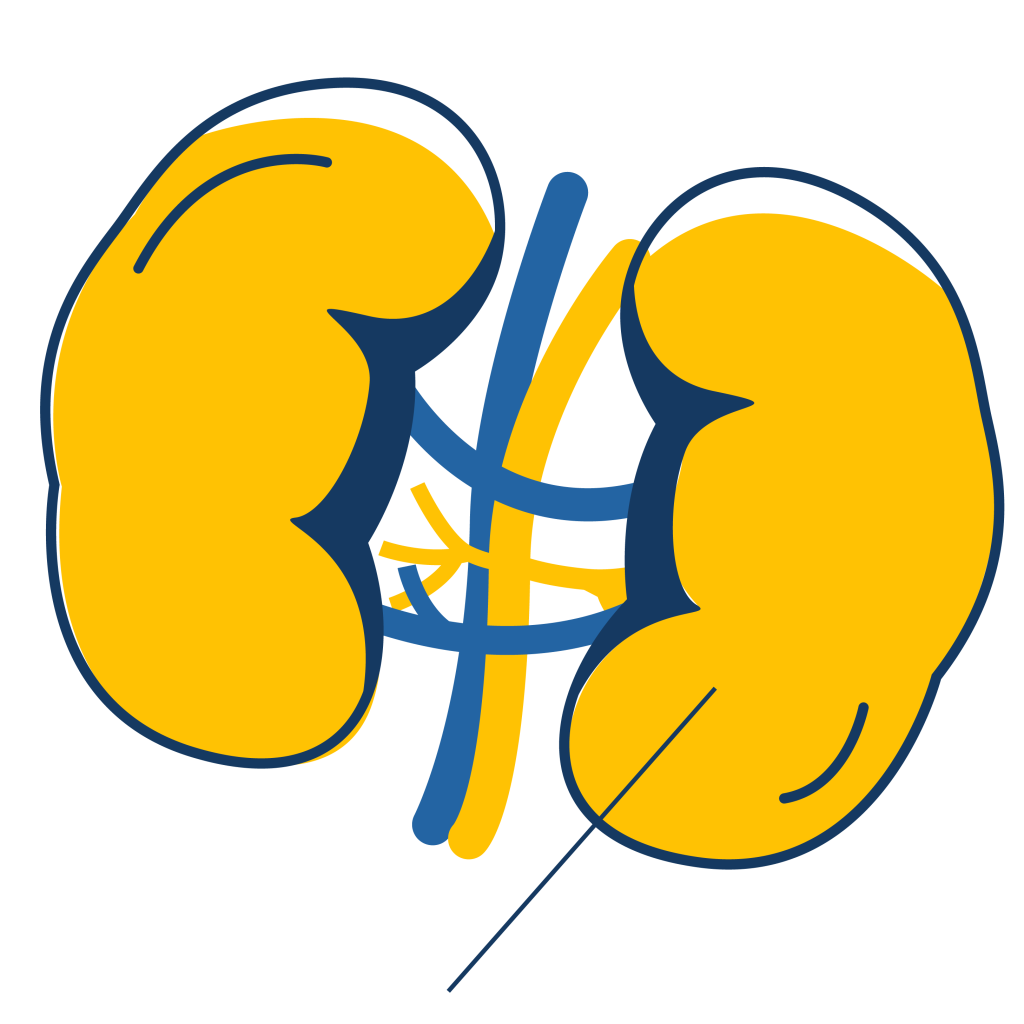
eGFR 90 OR HIGHER
What it means:
Mild loss of kidney function.
What you can do:
- See your doctor regularly to monitor your health, ask questions, and report any unusual or unexplained symptoms. Be sure to ask about your current eGFR.
- Make healthy lifestyle choices: eat well, quit smoking, exercise, reduce stress, and get enough sleep.
- Take all medications as directed and ask your doctor before taking any over-the-counter medications.

eGFR 60–89
What it means:
Mild to moderate loss of kidney function.
What you can do:
- See your doctor to discuss any changes in your lab values or symptoms you may be experiencing.
- Meet with a renal dietitian to address any nutrition concerns and to learn about eating well. Explore some kidney-friendly recipes.
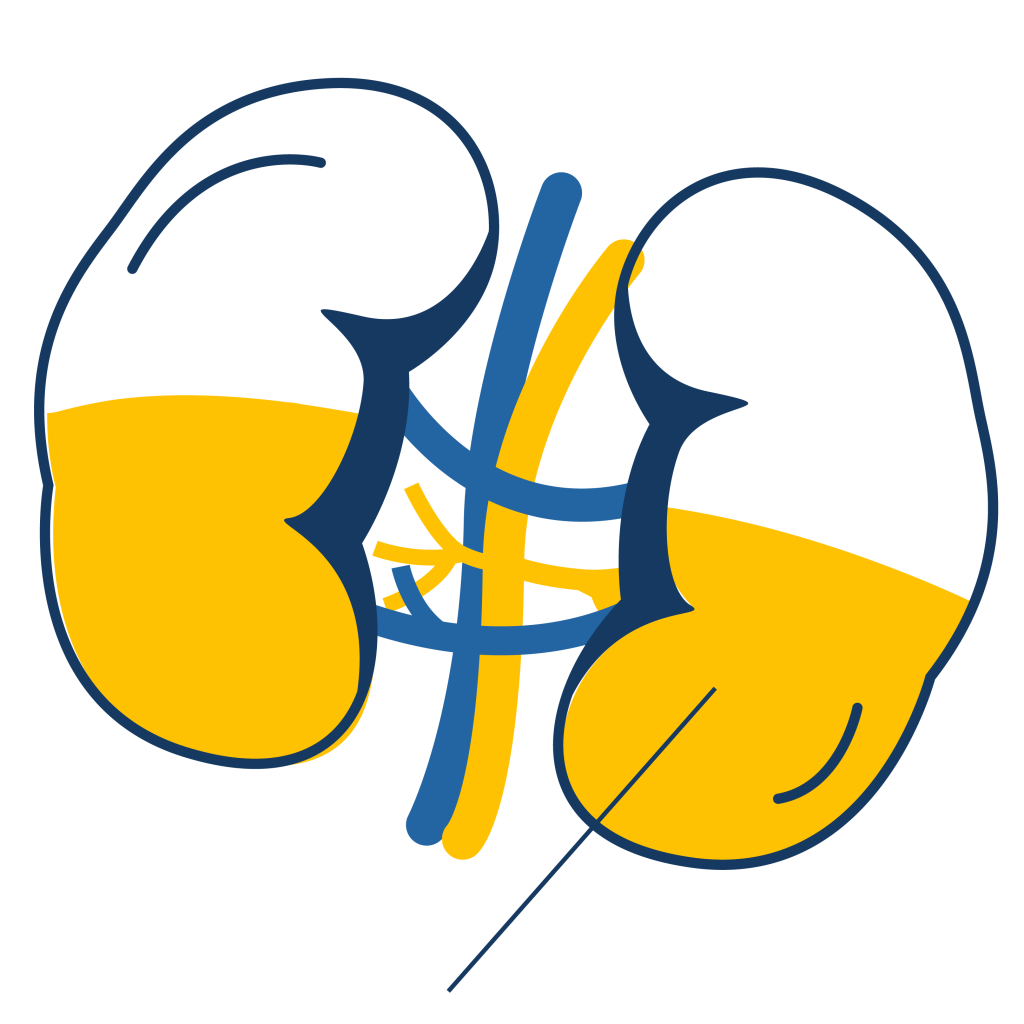
eGFR 45-59
What it means:
Moderate to severe loss of kidney function.
What you can do:
- See your doctor to discuss any changes in your lab values or symptoms you may be experiencing.
- Ask your doctor about a referral to see a kidney doctor (nephrologist) and continue working to slow CKD progression by managing your health.

eGFR 30-44
What it means:
Severe loss of kidney function.
What you can do:
- Follow the steps outlined in previous stages to take the best care and control of your health.
- Continue to see your doctor regularly for any new symptoms or changes in existing conditions.
- Talk with your dietitian about a kidney-friendly diet to help keep your kidneys working longer.
- Talk with your kidney doctor (nephrologist) to determine which treatment option best fits your lifestyle. Ask about a kidney transplant.
- Choose an access type and take the first steps toward getting your access placed.
- Start building your support network by reaching out to people who care about you and can encourage you.
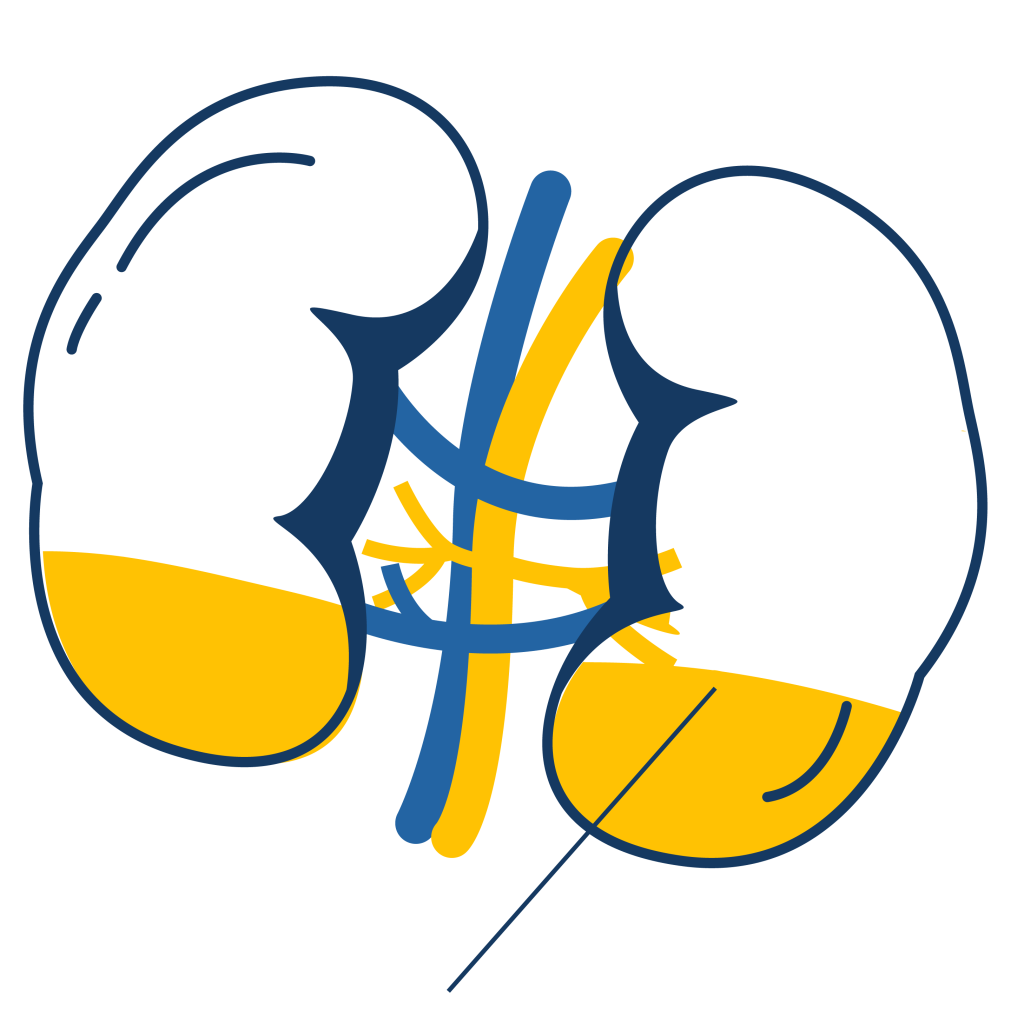
eGFR 15-29
What it means:
Kidney failure or close to failure.
What you can do:
- Follow the steps outlined in previous stages to take the best care and control of your health.
- See your kidney doctor (nephrologist) regularly to monitor progression.
- If you’ve chosen home dialysis, prepare your treatment space and learn what to expect from training.
- If you’ve chosen in-centre dialysis, tour a local dialysis centre and get answers to your questions.
- Learn all you can about thriving on dialysis and keep up an active lifestyle. If you’re working, find out about your rights and how to handle work and treatment.
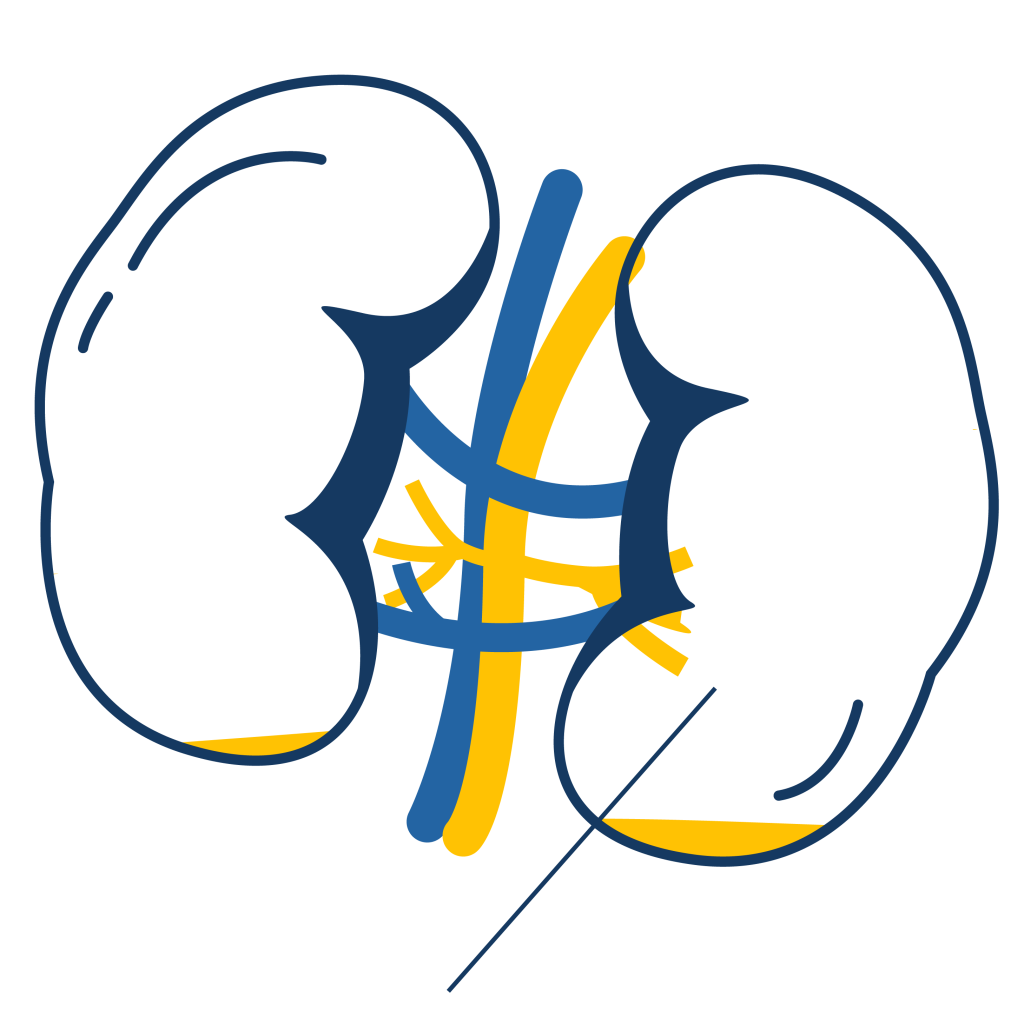
eGFR LESS THAN 15
What it means:
Kidney damage with normal kidney function.
What you can do:
- See your doctor regularly to monitor your health, ask questions, and report any unusual or unexplained symptoms. Be sure to ask about your current eGFR.
- Make healthy lifestyle choices: eat well, quit smoking, exercise, reduce stress, and get enough sleep.
- Take all medications as directed and ask your doctor before taking any over-the-counter medications.

eGFR 90 OR HIGHER
What it means:
Mild loss of kidney function.
What you can do:
- See your doctor regularly to monitor your health, ask questions, and report any unusual or unexplained symptoms. Be sure to ask about your current eGFR.
- Make healthy lifestyle choices: eat well, quit smoking, exercise, reduce stress, and get enough sleep.
- Take all medications as directed and ask your doctor before taking any over-the-counter medications.

eGFR 60–89
What it means:
Mild to moderate loss of kidney function.
What you can do:
- See your doctor to discuss any changes in your lab values or symptoms you may be experiencing.
- Meet with a renal dietitian to address any nutrition concerns and to learn about eating well. Explore some kidney-friendly recipes.

eGFR 45-59
What it means:
Moderate to severe loss of kidney function.
What you can do:
- See your doctor to discuss any changes in your lab values or symptoms you may be experiencing.
- Ask your doctor about a referral to see a kidney doctor (nephrologist) and continue working to slow CKD progression by managing your health.

eGFR 30-44
What it means:
Severe loss of kidney function.
What you can do:
- Follow the steps outlined in previous stages to take the best care and control of your health.
- Continue to see your doctor regularly for any new symptoms or changes in existing conditions.
- Talk with your dietitian about a kidney-friendly diet to help keep your kidneys working longer.
- Talk with your kidney doctor (nephrologist) to determine which treatment option best fits your lifestyle. Ask about a kidney transplant.
- Choose an access type and take the first steps toward getting your access placed.
- Start building your support network by reaching out to people who care about you and can encourage you.

eGFR 15-29
What it means:
Kidney failure or close to failure.
What you can do:
- Follow the steps outlined in previous stages to take the best care and control of your health.
- See your kidney doctor (nephrologist) regularly to monitor progression.
- If you’ve chosen home dialysis, prepare your treatment space and learn what to expect from training.
- If you’ve chosen in-centre dialysis, tour a local dialysis centre and get answers to your questions.
- Learn all you can about thriving on dialysis and keep up an active lifestyle. If you’re working, find out about your rights and how to handle work and treatment.

eGFR LESS THAN 15
Fresenius Kidney Care. The Stages of Kidney Disease [Internet]. [cited 16 Jun 2022] Available from https://www.freseniuskidneycare.com/kidney-disease/stages
WAYS TO TREAT YOUR KIDNEYS RIGHT
8 Steps to Reduce the Risk of CKD
Quit smoking
Maintain a healthy weight
Reduce sugar, sodium & fat intake
Take regular health screenings
Monitor blood pressure & sugar level
Decrease alcohol intake
Eat a balanced diet
Maintain a healthy lifestyle
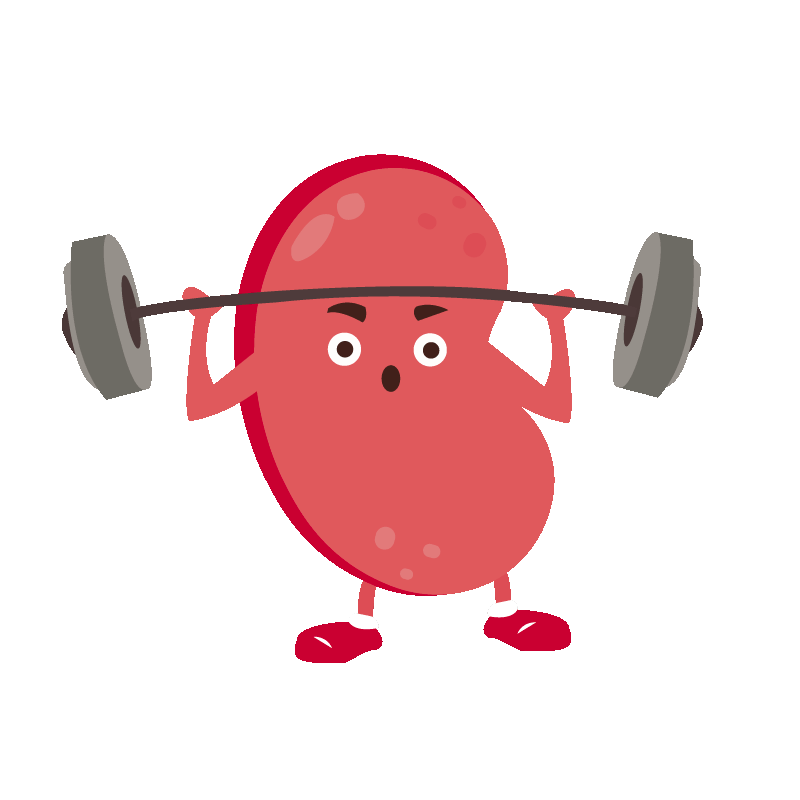
8 Steps to Reduce the Risk of CKD
Quit smoking
Maintain a healthy weight
Reduce sugar, sodium & fat intake
Take regular health screenings
Monitor blood pressure & sugar level
Decrease alcohol intake
Eat a balanced diet
Maintain a healthy lifestyle

National Kidney Foundation. Secrets to Outsmart the Silent Killer [Internet]. [cited 16 Jun 2022] Available from https://nkfs.org/kidney-failure/secrets-to-outsmart-the-silent-killer/
TESTIMONIALS

Hock Chye, 75
Malaysia
10 years in treatment"REGULAR HEALTH CHECKS - AT LEAST YEARLY ARE VERY IMPORTANT. PLEASE TREAT IT EARLY AND DO NOT IGNORE IT!"
Diagnosis:
It all started with bubbles in my urine. This was unusual so I consulted my doctor. A urine and blood test were performed, after which I was informed that I have only 30% of my kidney function left.Biggest Fear:
I was devastated. CKD is irreversible and tends to get worse all the time. The doctor said if I lived long enough, I will require dialysis one day.Biggest Motivation:
As the toxin levels in my blood decreased, my appetite started to improve and I generally felt better. And I became happier, as I saw these positive changes in me.Diet:
Diet and lifestyle changes are very important, I can still do my daily routines like travelling and exercising. I only need to be aware of what goes into my mouth.Important supporters:
My nephrologist and dietician, but at the end of the day, I had to realise that I am the only one responsible for my health.

Guillermo, 28
Ecuador
4 years in treatment"DO NOT BE AFRAID AND DARE TO TAKE CARE OF AND PROTECT YOUR KIDNEYS."
Diagnosis:
CKD, diagnosed after developing abnormal hypertension at the age of 18.Biggest Fear:
Becoming dependent on dialysis.Biggest Motivation:
My motivation is to achieve everything I ever wanted without my kidney disease being an impediment. I have seen many changes in me, I feel more active, I look healthier and I can now sleep peacefully knowing that, by following the therapy, I will improve my kidney function.Diet:
It has been 4 years of teaching and learning together with my nephrologist and my nutritionist. I make sure that my diet includes only white meat and that the protein portion does not exceed that recommended by my nutritionist.Important supporters:
My relatives, my girlfriend, my nephrologist and my KetoCare nutritionist.

Jean, 70
Taiwan
7 years in treatment"HAVING FAITH IS THE MOST IMPORTANT THING. KEEP YOUR HEART STILL AND HAVE A CLEAR MIND."
Diagnosis:
CKD stage 4, diagnosed after a complete body check.Biggest Fear:
When I first got the diagnosis, I thought I was doomed, and I was shocked. Fortunately, from examination to treatment, I have met many noble people to help me along the way.Biggest Motivation:
There are many things I want to do, and I have to maintain the course of treatment to achieve what I want to do. I never thought of giving up.Diet:
Numerous things can be done, including diet. If you are not prepared to restrict your diet, you have to ask yourself: do you actually want to survive.Important supporters:
My doctor and patients rely on their family members to seek help.

Nancy, 63
Chile
2 years in treatment"PATIENTS WHO WANT AND CAN, SHOULD START WITH THIS TREATMENT TO IMPROVE THEIR WELL-BEING AND QUALITY OF LIFE."
Diagnosis:
CKD detected in a check-up following a severe headache.Biggest Fear:
My biggest fear is having the doctor tell me that I can’t do more and I must start dialysis.
Biggest Motivation:
I have been able to keep my disease stable and compensated. I believe that this medicine is a very good solution, it is a salvation to delay the start of dialysis.Diet:
The most difficult thing for me is the issue of food – not being able to eat what other people eat. But what I can’t eat, I don’t eat. My best ally is work because it creates a routine.Important supporters:
I am grateful to my nutritionist, who helped me have a healthier regimen, the doctor and the medical team in general and my son, who has always encouraged me.
Discover early signs
of kidney failure.
Book a consultation and screening with your doctor today.
